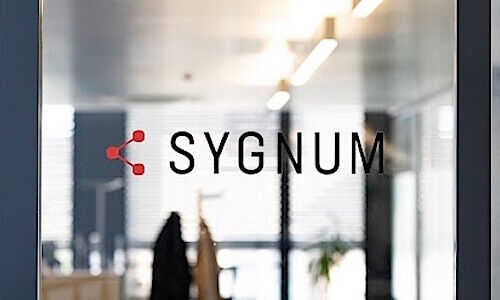Sygnum: Unregulated to Regulated Flows Fuel Growth
Digital asset specialist Sygnum is benefitting from regulatory certainty in Asia, co-founders Mathias Imbach and Gerald Goh told finews.asia, as flows are shifting away from unregulated entities.
In recent years, the crypto industry has seen the dangers of operating ambiguously without regulatory certainty. According to Mathias Imbach, co-founder and group CEO of digital asset specialist Sygnum, the emergence of new asset classes like cryptocurrencies does not necessarily mean it would be accompanied by new practices in areas like legal and compliance.
«We had this view around 2017 that while we strongly believed in the underlying technology behind cryptocurrencies, we also believed that the future has heritage, which would require KYC, AML and other characteristics to succeed,» said Imbach in a conversation with finews.asia, explaining the firm’s vision prior to incorporation in 2018.
«We never offered a single product to market without licensing. This a fundamental part of our philosophy,» added co-founder and Singapore CEO Gerald Goh.
Regulation-Driven Flows
While functions like compliance would normally be associated with costs, Imbach notes that it has in fact fuelled new business for Sygnum.
«One major growth driver for us has been the movement of assets from unregulated entities to regulated entities,» Imbach explained, citing the FTX collapse as an example. «If you hold crypto with Sygnum, it is off-balance sheet. Many people are very happy with this arrangement because they are familiar with the Chapter 11 proceedings by now.»
Asia Plays Catch-Up
While Sygnum’s business in Switzerland is more mature due to the first-mover advantage from its regulators acting early to provide a clear framework, Asia is now catching up.
«Asia has been integral to Sygnum's business plans since day one. However, the path here has been a bit more of a meandering one. The regulatory environment has slightly lagged behind others and we’ve only been able to develop our platform at pace with regulators,» explained Goh.
Local Market
Within Asia, Sygnum targets the non-retail market which typically includes crypto foundations, crypto companies, traditional family offices, asset managers and hedge funds. It also has a B2B focus in Switzerland with nearly 20 banks leveraging its technology via white labeling and there are expectations that it could attract this segment as well in Asia.
«This is an early trend in Asia but we see tailwinds from increasing regulatory clarity in the region,» Imbach said.
Sygnum secured a major payment institution license (MPIL) from the Monetary Authority of Singapore (MAS) in October and in the latest, it entered a partnership with the local unit of Bordier & Cie to provide digital asset services to the Geneva-headquartered private bank.
Traditional Firms
In addition to rival crypto natives, Sygnum also faces competition from traditional financial institutions. Some have rolled out in-house capabilities like DBS’s digital asset exchange, while others are investing in ring-fenced entities like Standard Chartered-backed Zodia Custody.
But Imbach is optimistic that such moves in fact help expand the overall market size.
«While global banks are increasingly competing with us in the space, their crypto offshoots and joint ventures are actually a positive development,» he said. «One of the major obstacles for the industry has been the lack of mainstream acceptance and with the entry of such trusted, legacy financial firms, this will further drive the market forward.»
ETF Hype
One of the next major developments that many are closely watching is the issuance of crypto-based exchange-traded funds. Some believe that this event has already been priced in while others expect an upswing after the funds officially hit the market. But either way, Goh said this will likely act as another tailwind for mass acceptance.
«The adoption of traditional structures to build crypto exposure is a very important step for the asset class to enter the mainstream,» he commented. «While the majority of crypto investors have been buying and selling directly, the bulk of fund flows traditionally goes through funds rather than direct investments.»
Sygnum is co-headquartered in Switzerland and Singapore with an offering focused on custody, trading, asset management and tokenization. Globally, it has around $4 billion in assets under administration with 230 staff across Switzerland, Singapore, Abu Dhabi and Luxembourg.




























